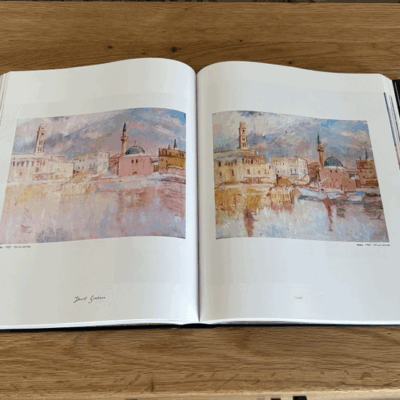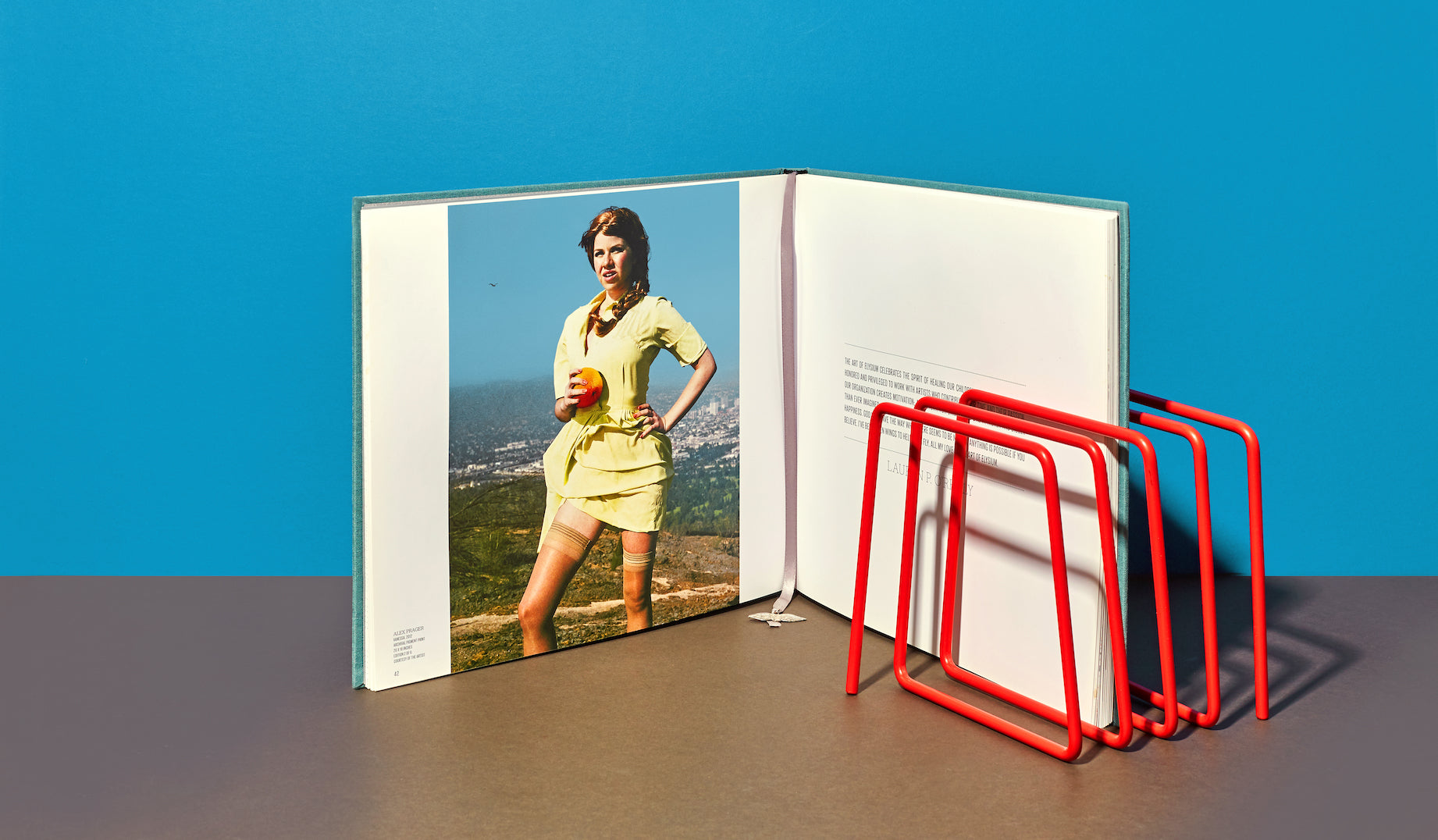Understanding the Refine Behind Premium Art Book Printing for Art Enthusiasts
When it comes to top notch art book printing, comprehending the details of the process can elevate your admiration for the final item. You may not understand exactly how essential paper choice and ink choices are to the vibrancy of artwork. Each component plays a considerable duty in achieving the wanted effect. As you check out the numerous components of art book printing, you'll reveal understandings that might change your perspective on art preservation and discussion.
The Significance of Paper Choice in Art Book Printing
When it involves art book printing, the choice of paper can make or break the end product. You desire your art work to shine, and the best paper boosts shade vibrancy and information. Consider elements like weight, appearance, and coating; these components considerably affect exactly how viewers regard your work.
For example, a larger stock conveys high quality and durability, while a textured finish can add depth to images. Smooth paper is outstanding for in-depth reproductions, allowing fine lines and subtle shades to appear crisp.
Don't ignore the paper's illumination; a brighter sheet can assist shades pop, making your art extra attractive. You'll additionally intend to assume regarding exactly how the paper engages with inks and whether it can manage the printing process without deforming or bleed-through. Ultimately, selecting the right paper establishes the phase for your art, ensuring it captures the audience's focus simply as you imagined.
Selecting the Right Inks for Dynamic Reproductions
Choosing the appropriate inks is equally as important as picking top quality paper to accomplish dynamic recreations in your art book. When you're publishing artwork, you desire shades that pop and accurately stand for the original item. Go with inks with a high pigment concentration; these tend to generate richer and much more saturated colors.
You might consider making use of historical inks, which withstand fading over time, guaranteeing your art book remains as striking as the day it was published. If you're working with pictures or digitally produced art, pigment-based inks can provide a broader color range, boosting detail and deepness.
Don't fail to remember about the surface! Matte and shiny inks can considerably alter the look of your art work, so think regarding the appearance you're aiming to accomplish - art book. Ultimately, the best ink selection complements your paper choice, developing a spectacular aesthetic experience for your viewers
The Role of Color Monitoring in Publish Quality
Color administration plays a crucial role in accomplishing high print top quality for your art book. It assures that the colors you see on your screen equate properly to the published page. Without effective color administration, your vivid art work may appear dull or distorted, weakening your imaginative vision.
To start, calibrate your monitor frequently. This action helps maintain constant color representation. Next, utilize shade accounts customized for your printer and paper kind. These accounts lead the printer in reproducing colors accurately, reducing discrepancies between digital and printed versions.
When you prepare your data, take into consideration making use of a shade room like Adobe RGB or CMYK, relying on your printer's specifications. Always proof your work, too; a test print can expose any potential shade concerns before the final run. By focusing on shade management, you safeguard the honesty of your art, assuring your audience experiences it as you planned.

Understanding Various Binding Techniques
Attaining the best try to find your art book goes past color monitoring; binding methods additionally play a considerable role in its general presentation and longevity. You have a number of alternatives to assess, each with its very own distinct features.
If you're going for a specialist feel, instance binding offers a strong option with a difficult cover, excellent for showcasing your artwork. On the various other hand, perfect binding offers an adaptable spine while maintaining costs down, making it a preferred choice for softcover books.
Spiral binding permits your art book to lay flat, which is terrific for presenting images without obstruction. Saddle stitching is optimal for smaller sized pamphlets, giving a clean surface without the mass.
Inevitably, the binding technique you choose ought to show your imaginative vision and just how you want readers to engage with your work. Make certain to evaluate these alternatives carefully to achieve the most effective result for your job.
The Influence of Publish Dimension and Format on Discussion
While the choice of print dimension and layout may seem secondary to content, they significantly influence exactly how your artwork is viewed. The measurements of your prints can either improve or reduce the effect of your items. Bigger prints can attract customers in, enabling them to value complex information, while smaller sized styles may need more intimate interaction.

Conservation Techniques for Durable Art Books
To assure your art books stand the examination of time, it's important to execute effective conservation methods. Beginning by keeping them in an amazing, dry atmosphere, away from straight sunlight and moisture. This stops fading and warping, maintaining your pages undamaged. Usage acid-free storage boxes or safety sleeves to protect them from dirt and physical damage.
When managing your publications, constantly wash your hands or wear cotton gloves to stay clear of oils and dust transferring onto the web pages. Prevent bending or wrinkling the backs; rather, make use of book sustains when displaying them.
For included protection, consider spending in archival-quality materials for any repair services or improvements. Routinely examine your collection for indications of wear or damages, dealing with problems immediately. By adhering to these basic techniques, you can guarantee your art books remain lively and accessible for years to come, maintaining their appeal and value for future generations.
Working together With Printers for Optimum Outcomes
When you prepare to print your art book, choosing the best printer is necessary to accomplishing your vision. Clear communication concerning your assumptions and needs will certainly aid guarantee that both you and Learn More Here the printer are on the same web page. Allow's discover just how to make this collaboration as seamless and effective as possible.
Selecting the Right Printer

Effective Interaction Methods
Reliable interaction is important for turning your art book vision right into truth, especially when collaborating with printers. art book. Beginning by plainly describing your task's objectives, including design aspects, recommended products, and any kind of particular printing techniques. Do not wait to share your motivations and references; this aids the printer comprehend your visual
Be open to feedback, as printers usually have useful insights that can boost your task. This cooperation will ensure that your art book satisfies your assumptions and radiates in its last kind.
Often Asked Inquiries
What Prevail Mistakes to Prevent in Art Book Printing?
When printing your art book, stay clear of usual blunders like poor resolution pictures, incorrect shade profiles, and neglecting page design. Don't fail to remember to check and ascertain details to verify your end product fulfills your expectations.
Just How Does Digital Printing Differ From Typical Printing Techniques?
Digital printing utilizes electronic data to develop prints directly, permitting for quicker turnaround and More hints customization. On the other hand, standard techniques include physical plates, which can be taxing and less flexible for tiny runs or distinct styles.
What Is the Normal Turn-around Time for Art Book Printing?
The common turn-around time for art book printing differs, yet you can anticipate it to take anywhere from a few weeks to numerous months. Variables like intricacy, quantity, and printing method all influence this timeline.
Can I Print a Limited Version Art Book Financially?
You can publish a minimal version art book economically by choosing economical materials, maximizing print runs, and making use of digital printing choices. Cautious planning and budgeting will certainly aid you accomplish quality without spending beyond your means.
What Are the Environmental Considerations in Art Book Printing?
When considering art book printing, you need to think of eco-friendly products, lasting inks, and energy-efficient processes (art book). Choosing neighborhood printers can additionally lower your carbon footprint, making your task both stunning and environmentally liable